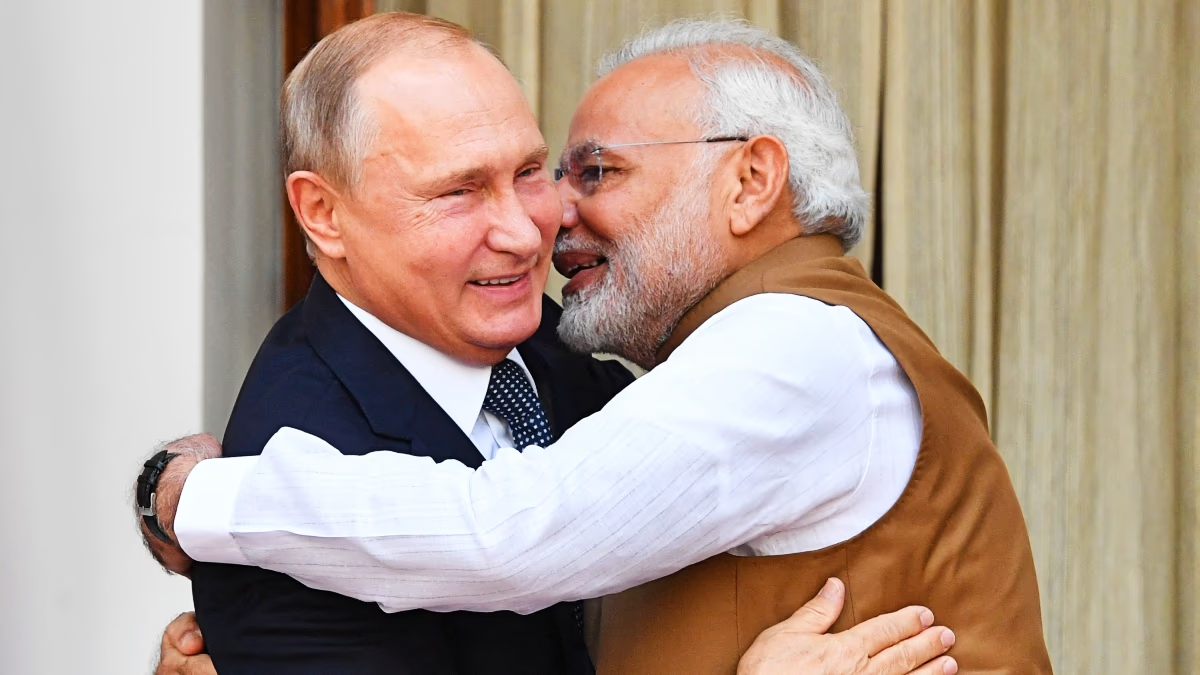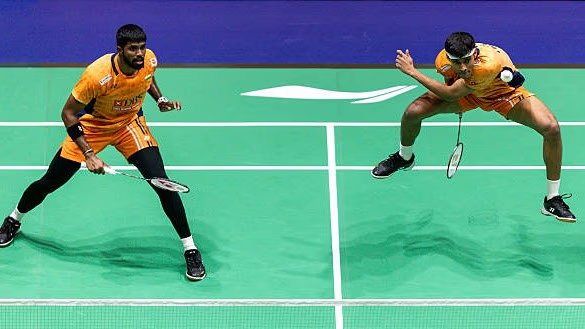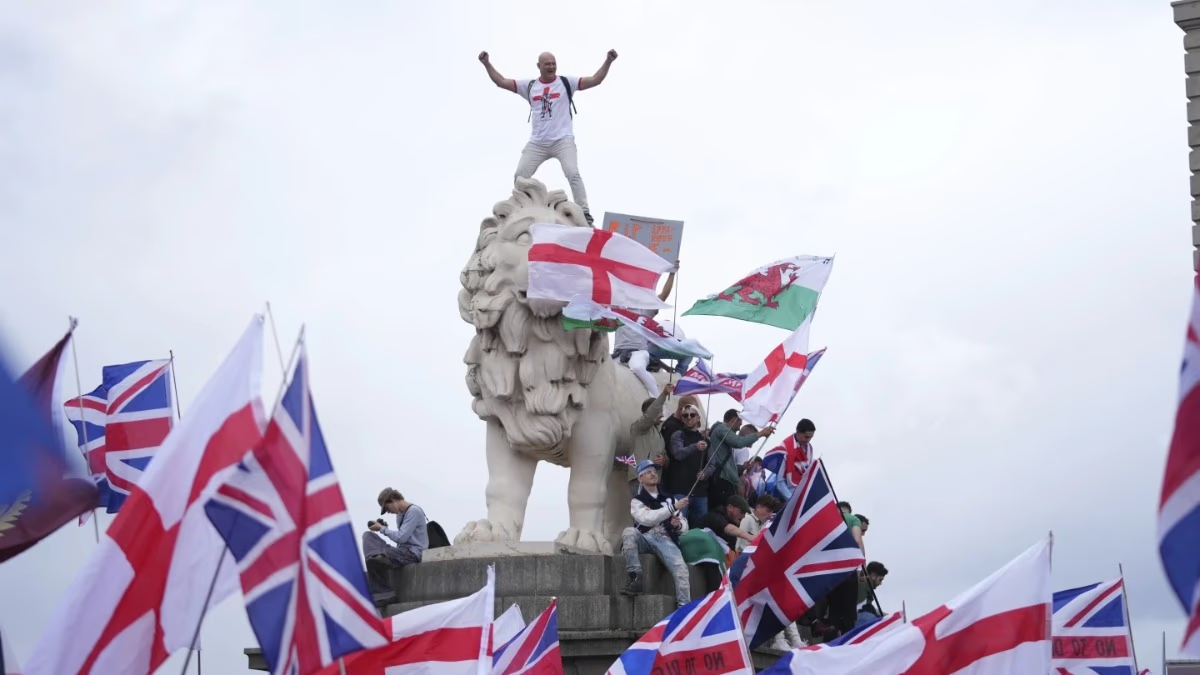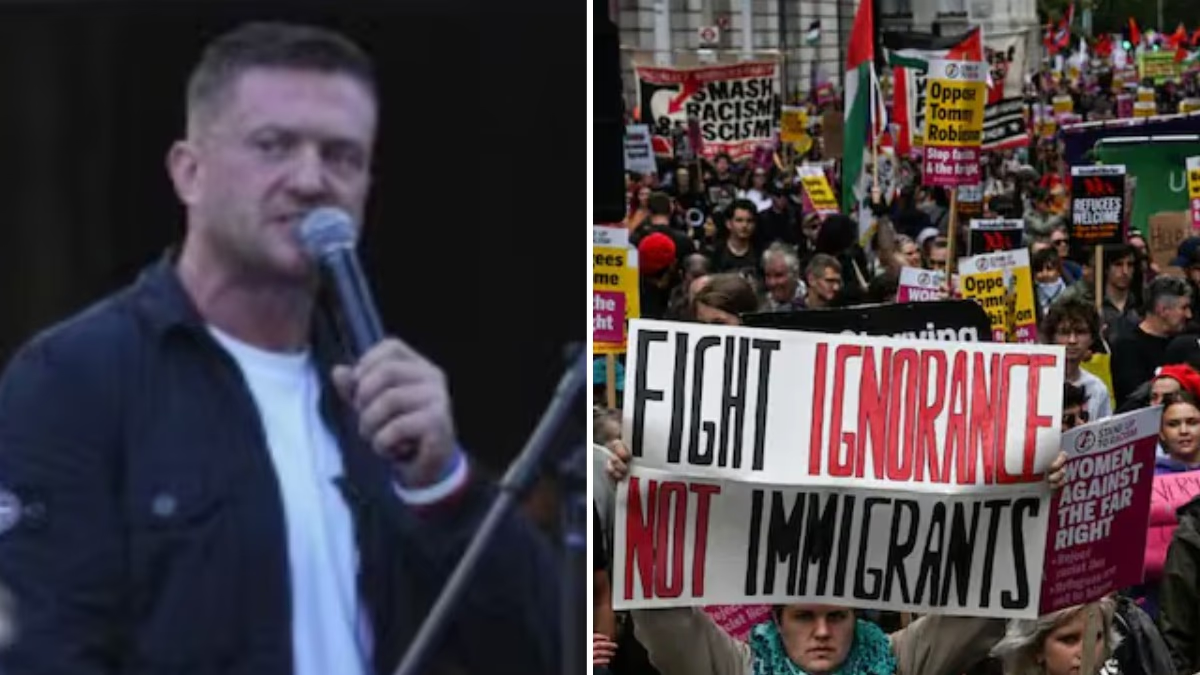Kenneth Juster served as the U.S. Ambassador to India from 2017 to 2021. In February 2022, during a program on an Indian news channel, Kenneth highlighted that India did not want the U.S. to comment on Chinese aggression along the Line of Actual Control in Eastern Ladakh.
Kenneth Juster mentioned, ''The Modi government preferred restraint in any statement concerning China during talks between India and the U.S. Even during Quad-related joint statements, this was India's stance, reflecting concern about not provoking direct ire from China.''
In June 2020, when 20 Indian soldiers were martyred in Galwan protecting the border, the U.S. openly expressed solidarity with India, unlike Russia, a traditional ally of India. Russia simply indicated it desired a resolution through dialogue between both countries.
India neither publicly rejoiced at the U.S. expressions of sympathy nor showed annoyance at Russia's reserved response.
It’s often anticipated that India might ally with the U.S. to counter China, but India rarely sees this as a permanent solution.
The Debate Over U.S.-India Relations
On June 20, Prime Minister Narendra Modi set foot in the U.S. for his first State visit, invited by U.S. President Joe Biden, marking a significant event. Previously, Biden hosted the Presidents of France and South Korea for State visits. PM Modi will also address the U.S. Congress for a second time as Prime Minister.
This warm engagement between the U.S. and India is being observed from various angles, with some asserting that India and the U.S. were never so close. In the midst of PM Modi's State visit, numerous analysts are debating the intricacies of U.S.-India relations.
At The Heritage Foundation’s Asian Studies Center, Director Jeff M. Smith pointed out, "Compared to most of America's other strategic allies, the conflict of values between India and America is quite low. India is more democratic and geopolitically significant than many of America's traditional partners, yet misconceptions about India linger."
In response, Derek Grossman, an analyst for national security and Indo-Pacific at Rand Corporation, remarked, "True, but not every ally gets the opportunity for a State dinner and to address the joint session of Congress. Additionally, I believe the U.S. holds higher expectations from India compared to other allies, making the ongoing debate around India quite justified."
Renowned analyst Brahma Chellaney stated that India is not going to become a follower of the U.S. He wrote, "The U.S. is not accustomed to receiving challenges from its allies. During the Cold War, it was a U.S. expectation that its allies would comply when it spoke, but this won’t hold true with India. This is why the U.S. focuses on creating a soft alliance with India."
Is America Really Steering India Away from Russia?
PM Modi's U.S. visit sparks discussions with speculations on whether the U.S. wishes to distance India from Russia, bolster it against China, and sell arms to India while eyeing its massive market. Strong arguments for these notions are being presented.
Aparna Pande, Director of the India Initiative at the Hudson Institute, mentioned in the American magazine Foreign Policy, "The U.S. has always been concerned about India-Russia defense ties. Now the U.S. sees an opportunity to sway India since Russia faces supply challenges and equipment flaws, while growing closer to China. These factors might make India consider enhancing defense ties with the U.S. and its allies."
Has India truly decided to distance itself from Russia? Last week, Indian Foreign Minister S. Jaishankar provided an answer to this question in a lengthy interview with 'The Economist.'
Foreign Minister S. Jaishankar stated in the interview, "India's relationship with Russia is the outcome of 60 years of history."
Jaishankar explained that a 60-year-old relationship doesn’t change instantaneously. In reality, such a shift isn’t feasible. The American administration and leadership comprehend this. They are aware that after 1965, America decided not to sell arms to India, leaving India with no option but to turn to the Soviet Union. It cannot be expected that we suddenly face objections from choices compelled by such historical contexts. This reality has to be acknowledged.
Jaishankar added, "Though, India’s stance on the Russia-Ukraine conflict isn't limited to its defense dependency on Russia; it's a far more complex matter."
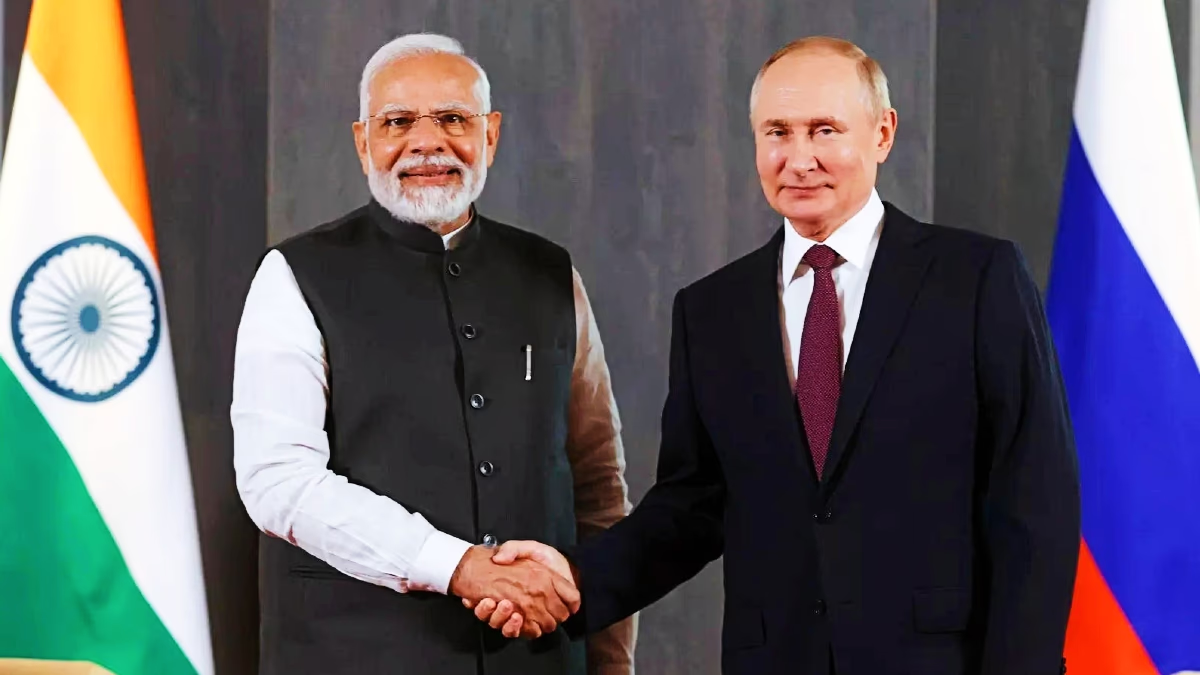
Source: aajtak
The Foreign Minister commented, "We have three significant Eurasian powers - Russia, China, and India, each with its dynamics. It's not merely transactional but geopolitical. We're discussing the implications of these powers gravitating towards or away from each other. What happens in Eurasia is contingent on the interactions among these three countries. A fundamental principle of our foreign policy is maintaining good relations with Russia, signifying Russia's geopolitical importance to us."
Jaishankar remarked, "India aims to have multiple options, choosing what’s best for itself."
He observed that post-Ukraine war, Russia is tilting towards Asia over the West, enhancing Indo-Russian cooperation even further while simultaneously strengthening U.S.-India partnerships. Consequently, India won’t be moving in one singular direction.
Russia Won’t Stand by India Against China
Though Jaishankar views India’s future with Russia through a lens of shared past, a changing global order leads several analysts to believe that India-Russia relations can’t remain as they were. Among these analysts is Indian-American journalist Fareed Zakaria.
In an interview with Karan Thapar, Fareed Zakaria expressed that after the violent skirmishes with China at the LAC, situations have fundamentally transformed. He noted that Russia’s position in the ongoing Ukraine conflict makes staying aligned with Russia uncomplicated.
Fareed states, "India moving closer to America isn’t surprising due to China's growing strength and increasing border aggressions. India can’t count on Russia when facing China. With Moscow reduced to Beijing's junior partner following the Ukraine conflict, China can influence Russia. Should India face escalated encounters with China at the border, China might restrict Russian defense supplies to India. In such scenarios, how will India respond? India's inclination towards the U.S. must be considered in this context. Moreover, the effectiveness of Russian military equipment, as visible in the Ukraine conflict, leaves India inadequately prepared to combat China. Hence, a growing strategic partnership between the U.S. and India is beneficial for both."
During PM Modi's visit, two major agreements on defense and advanced technology with the U.S. are anticipated. The U.S. may supply MQ9B drones to India, and discussions are underway for jet engine production in India. Fareed Zakaria believes that if these deals go through, they will be landmark advancement for both countries. It's unprecedented for the U.S. to agree to technology transfer to India.
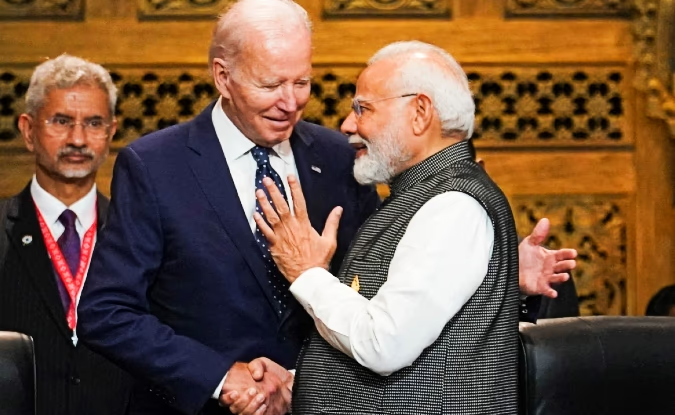
Source: aajtak
America Outshines Russia in Economic Partnerships
It’s not just about defense agreements; the U.S. stands as India's largest trading partner. The bilateral trade between India and the U.S. has reached $191 billion, with India achieving a trade surplus.
In the last fiscal year, India’s trade surplus with America was $28 billion. While India-China bilateral trade has surpassed $100 billion, India suffers a significant trade deficit here. Despite the increased acquisition of oil from Russia amid the Ukraine conflict, bilateral trade with Russia barely surpassed $30 billion.
Relying solely on past ideologies from the Cold War era with the Soviet Union, India cannot overlook U.S. associations. Prior to the Ukraine war, Chinese President Xi Jinping and Russian President Putin met, issuing a joint statement claiming no limits to China-Russia ties, which seems evident now. Moreover, ahead of PM Modi’s visit, U.S. National Security Advisor Jake Sullivan stated that U.S.-India relations transcend boundaries.
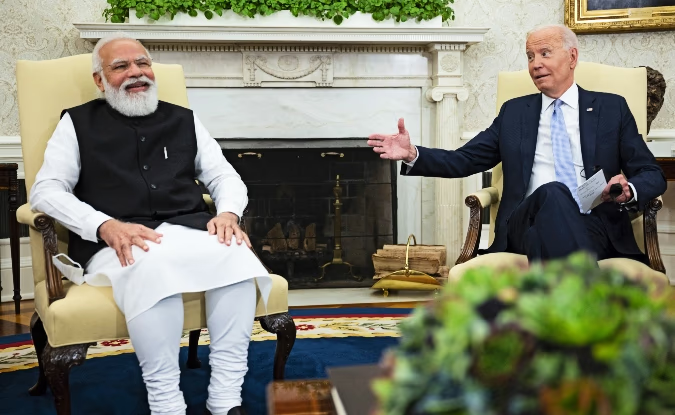
Source: aajtak
China’s economic structure is often referred to as an export-based economy. China remains the world’s factory only while global demand for its goods persists. China cannot abandon the West for Russia, as its significant trading partners are Western nations.
Similarly, India can’t remain chained to Russia solely through past ideological alliances from the Soviet era. President Putin imagined a swift victory over Ukraine within weeks, yet the conflict drags on with no resolution after more than a year, leaving Putin embroiled. Thus, India can’t rely on Russia alone for conflict with China.
Regardless of Russia or America, India Prioritizes Its Interests
Though current circumstances may prevent Russia from fulfilling India’s defense needs, its significance transcends this limitation. Russia serves as India's gateway for Central Asian and Iranian access, where Russia commands influence while China is strong. India is developing the Chabahar port in Iran, necessitating Russian assistance. With America withdrawing abruptly from Afghanistan, India can safeguard interests via Russia.
India repeatedly asserts its friendship with America isn’t against Russia, similarly its bond with Russia isn’t against America. This resonates with truth. A fortified India isn’t solely in Russia’s or America’s interest. Nonetheless, aligning with both Russia and America denotes complex diplomacy, and Modi seeks to play this intricate field.
View complete coverage of PM Modi’s U.S. visit here
